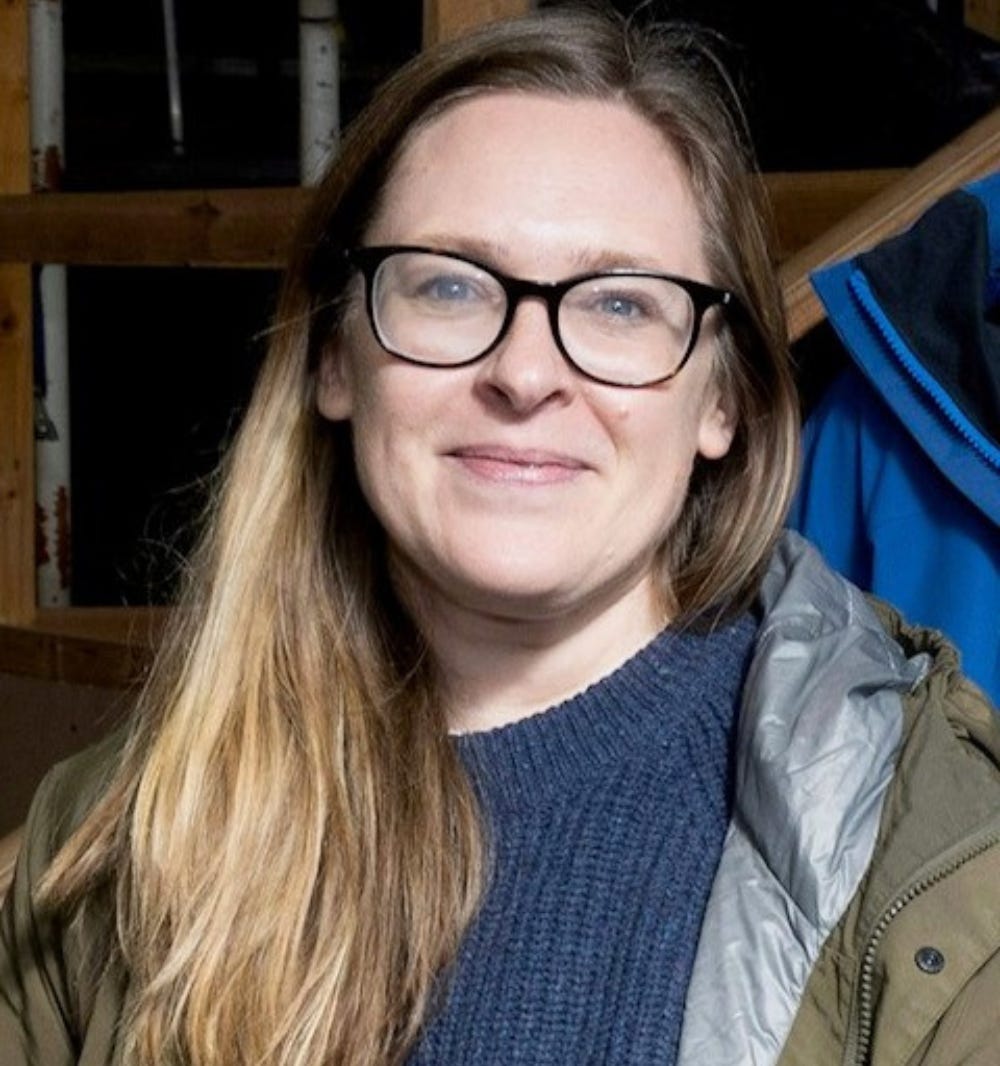Why are things turning sour at Edinburgh University?
Staff accuse principal of 'manufacturing a crisis' as academics face job cuts to balance £1.4bn a year books
Want more of our journalism? Sign up as a free or paying subscriber here
Hello Inquirers,
The University of Edinburgh is without doubt one of the world’s most highly regarded.
Yesterday it was listed in the global top 30 by the Times Higher Education World Education Rankings based on a survey of 55,000 academic worldwide.
Its academics carry out world-class and groundbreaking research in areas including AI to medicine. Some of those same academics, however, are deeply unhappy.
Earlier this week in an exclusive investigation which got our paid members talking we revealed that academics at the university have taken the first step towards potential industrial action.
University principal Peter Mathieson has warned that all options are on the table, including compulsory redundancies, course closures and mergers, as it takes steps to ensure it continues balancing its books.
The principal has said he needs to take decisive action now to protect the financial wellbeing of the institution after years of Scottish Government funding cuts and a slowdown in its lucrative earnings from fee-paying overseas students.
However, income from student fees and education contracts is continuing to rise, albeit at a slower rate than in recent years and that the university was expecting, and staff costs are falling as a proportion of the university’s overall spending.
That has led some staff to question why their jobs are on the line and question whether they are paying the price for the university’s growing investments in prestigious property developments, such as the Edinburgh Futures Institute.
Unions including the UCU, the main representative of academic and academic-related staff, and Unite are calling for a rethink.
All this, coupled with the lowest student approval ratings in Scotland, suggests the university is facing significant challenges despite its outstanding achievements.
You can read Jolene Campbell’s full, in-depth report here by signing up as a paying member and supporting our high-quality, independent journalism. If you are not quite ready to take the plunge yet, then you can read Jolene’s investigation in full by taking out a free 7-day trial.

This week we have also delved into the fascinating world of the charity detectives who go about unearthing millions of pounds in forgotten funds that are reinvigorating trusts in the Capital. The legacies of among others a former Royal Marine Commando from Edinburgh have been brought back to life by their forensic work.
You can get an extended taste of David Forsyth’s long read below, or read it in full with a paying membership, but first our usual catch-up with everything essential you might have missed in recent days, plus a look forward to the weekend.
Your Edinburgh Briefing
BEST FOR BOOKS: Three independent book shops in the Lothians have been named among the best in Britain. The Edinburgh Bookshop in Bruntsfield; Far From the Madding Crowd, in Linglithgow, West Lothian; and Night Owl Books in East Linton, East Lothian, are all finalists in the Independent Bookshop of the Year awards.
CONNERY’S CASH: Jason Connery has added to his stake in the First Stage film studio in Leith by investing £1 million in the Lost Shore Surf Resort at Ratho. Sir Sean’s film-maker son said the £60m development “brings something truly special to Scotland”.
UNIVERSITY SNOBS: The University of Edinburgh still has a problem with English “snobs”, according to principal Peter Mathieson, who says some students face discrimination as soon as they open their mouths.
TAXING TIMES: As Edinburgh prepares to approve a record 8% council tax rise today, East Lothian has come a step further by becoming the first in Scotland to agree a double digit increase. The 10% rise will put the average Band D up to £1,579, while the same property in Edinburgh will soon pay more than £2,000. Council leader Norman Hampshire said: "East Lothian's growth continues to put pressure on all parts of the council. It is vital that we can sustain essential services to protect our most vulnerable residents and invest in education to give all children the best start in life."
HOSPICE HOMES: The former St Columba’s Hospice and its grounds on the western outskirts of the city near Hermiston will be turned into 10 homes under fresh plans presented to the city council.
BRIDGE OF SIGHS: Another day, another city bridge facing months of disruptive work due to serious structural problems. With work on North Bridge set to continue for most of the rest of the year, the Harrison Road Bridge in Gorgie now faces being closed for five months for major repairs.
SEASIDE SOUNDS: Air, the Boomtown Rats and the Bluebells have been announced as the first headline acts for this summer’s Fringe by the Sea in North Berwick.
SCIENCE IN SPACE: The Edinburgh International Science Festival has announced its programme for this year on Saturday 5 to Sunday 20 April. This year’s festival will explore the challenges of living on a planet with finite resources, through the lenses of science fiction and space exploration, with the theme Spaceship Earth.
UP FOR THE CUP: All eyes will be on Twickenham on Saturday as Scotland aims to keep its good run in recent Calcutta Cup rugby clashes going as they take on the Auld Enemy at 4.45pm. C’mon Scotland!
HOMETOWN HERO: Catch Edinburgh’s own guitar hero Hamish Hawk at the Usher Hall on Saturday.
Charity detectives finding "buried treasure" to fund good works
City trusts gaining new purpose from successful release of ‘lost’ millions
by David Forsyth
It may not be buried treasure, but there is no getting away from the fact that millions of pounds of charitable funding given by generous Scots through the generations is locked away, unused.
Much of the money may as well be locked in a chest, because the purpose for which it was created is no longer relevant in a world that has changed beyond recognition over the passing of time.
How do we know? Because £5 million of funding from inactive trusts that had become effectively dormant has been tracked down and brought back into use, helping tackle everything from alleviating poverty to lifting men from social isolation. Some 300 inactive trusts have been identified so far.
And it is all thanks to a project being run by funder Foundation Scotland and the charity regulator, OSCR. And while no treasure maps are available, a little detective work continues to yield positive results.
The Revitalising Trusts Project is today appealing to trustees of charitable funds, often family solicitors, who may be concerned that their trust is not being for the charitable purpose intended to get in touch, so that help can be provided to either breathe new life into their good work. The funds do not go into any kind of central pot which can be applied for, rather specific use has to be found to match as closely as possible each individual trust’s founding ideals.
£5 million found - more to come
The project is also being proactive, OSCR going through its comprehensive list of Trust Funds, tracking activity, and then getting in touch where there is little sign of the funds being used, when Foundation Scotland takes over.
Steff Bell, Revitalising Trust Project Advisor at Foundation Scotland, said: “There has been a fair bit of ‘detective work’ in what we’ve managed to achieve so far in releasing over £5 million for charitable causes. We are very proud of what’s been done to date, but the potential is much greater, and we believe many millions are still out there. We’re committed to working alongside OSCR to ensure that every penny currently sitting in a dormant charitable account reaches a cause fitting with the original intentions. This is especially important in the current difficult climate.
“Each dormant charitable trust we uncover has its own individual nuances and requires a bespoke plan. We are making great progress; overall, the trustees we have approached have received the offer of support positively, with several indicating that they’d been stuck for several years, unsure how to take next steps to distribute funds.
“We’re also gaining traction amongst the legal profession, who are often a gateway to these trusts, and we’re actively encouraging anyone working with a charity that has fallen inactive to reach out to us. I’m confident that by working together, we can help many more trusts to maximise their funds and reach for public good.”
Read on in full here.






